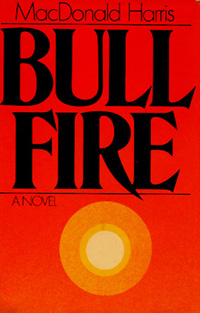

As the story opens, Nino begins to tell us about his life on the Mediterranean island where he lives with his sexually and scientifically inventive family. He conceals nothing from us: his bizarre and fantastic childhood, his mother's young literary "friends," his father's dispassionate observation of them all, the "games" he and his sister make up...
The novel tells the story of Nino's half-conscious struggle to know who he as and to become human. What he tells us about his family and about his intimates would be pornography if it were in blunt language. But the exotic events are related with an innocence, a naivete, a candor so total that they become matter-of-fact and natural.
The one thing Nino does not tell us, because he is hardly aware of it himself, is the strange web of the mythical in his own personal identity. Only gradually does the reader recognize that there is something familiar and timeless in the story that is unfolding. The legends that lurk in the humam memory, extending far back to the dawn of history, are constantly reborn. As Nino hardly knows that he is living out his own myths, that the story he is enacting has taken place before, so the average man does not know it.
It is the impact of so wonderful and contemporary a story with this profound idea that makes the publication of Bull Fire an extremely important event.